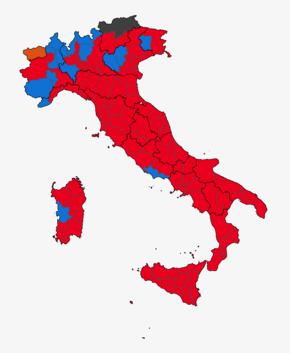| |||||||||||||||||||||||||||||||||||||||||||||||||||||||||||||||||||||||||||||||||||||||
All 78 Italian seats to the European Parliament | |||||||||||||||||||||||||||||||||||||||||||||||||||||||||||||||||||||||||||||||||||||||
| Turnout | 71.72 ( | ||||||||||||||||||||||||||||||||||||||||||||||||||||||||||||||||||||||||||||||||||||||
|---|---|---|---|---|---|---|---|---|---|---|---|---|---|---|---|---|---|---|---|---|---|---|---|---|---|---|---|---|---|---|---|---|---|---|---|---|---|---|---|---|---|---|---|---|---|---|---|---|---|---|---|---|---|---|---|---|---|---|---|---|---|---|---|---|---|---|---|---|---|---|---|---|---|---|---|---|---|---|---|---|---|---|---|---|---|---|---|
This lists parties that won seats. See the complete results below.
| |||||||||||||||||||||||||||||||||||||||||||||||||||||||||||||||||||||||||||||||||||||||
The 2004 European Parliament election in Italy was held on 12 and 13 June 2004.
Italy's highly fragmented party system made it hard to identify an overall trend, but the results were generally seen as a defeat for Italian Prime Minister Silvio Berlusconi and a victory for the centre-left opposition coalition identified with Romano Prodi, who was President of the European Commission until 2004, and was widely expected to re-enter Italian politics at the next election.
The common list of The Olive Tree, comprising mainly the Democrats of the Left and The Daisy became the largest list, with an important psychological effect. However, expectations for this list were originally somewhat larger, and Massimo D'Alema had proclaimed that "If the unity list reaches 33%, the government has to go".
While the Olive Tree's performance was not as phenomenal as it had hoped, the test indicated a somewhat reduced support for the centre-right coalition. However, in European elections, Italians tend to vote in a more candidate-oriented way, giving their vote more easily to a candidate outside their usual party; this generally reduces the significance of these elections.
